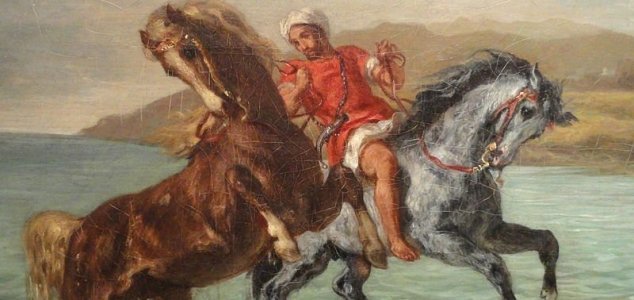
Horse racing in ancient Turkey had its own unique set of rules.
Archaeologists have deciphered a 2,000-year-old tablet inscribed with the rules of a horse racing event.
The ancient Turks were known for their love of horse racing and now, thanks to the translation of an ancient tablet within the ruins of the Lukuyanus monument – an old stadium in Turkey’s Konya province – it turns out that they were particularly sporting about the whole thing too.
According to the tablet, when a competitor won a race he was then forbidden from participating in any other races – a rule put in place to give other jockeys a chance at winning.
Red Rum may have made modern horse racing history with his consecutive wins, but the rules of the sport were very different 2,000 years ago.
A stone tablet has been discovered in Konya, Turkey that outlines the ancient rules of racing – and it may be the oldest rules of the sport ever found.
The Greek inscription reveals winning horses and other others trained in the winning owner’s stables were banned from racing after a victory to give other competitors a chance of glory.
The winner was even forbidden from entering any horses at all in to any subsequent race.
“This was a beautiful rule, showing that unlike races in the modern world, races back then were based on gentlemanly conduct,” said Professor Hasan Bahar from Selcuk University.
Originally posted 2016-05-04 20:36:20. Republished by Blog Post Promoter













